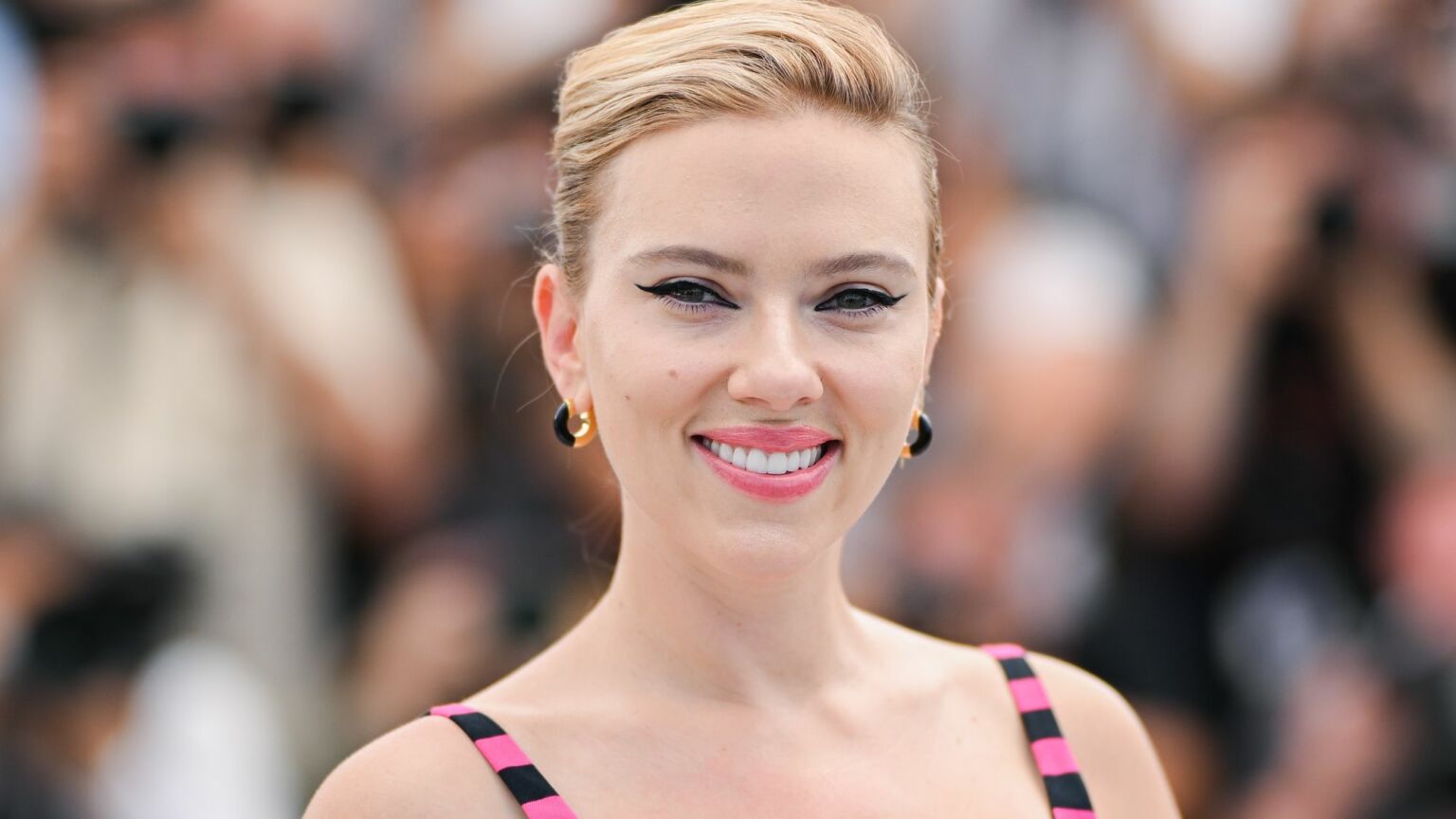Scarlett Johansson vs the Big Tech rip-off merchants
Creatives large and small are being trampled on by AI.

Want to read spiked ad-free? Become a spiked supporter.
ScarJo 1, nerds 0? Hollywood actress Scarlett Johansson has successfully shamed OpenAI into removing the female voice from its latest version of ChatGPT, on the grounds that it sounds suspiciously like her own. The voice, called ‘Sky’, was released as part of a new chatbot feature for ChatGPT-4o last Monday. But within a week of its release, Sky has been reluctantly retired.
Johansson claims that OpenAI ripped off her voice and used it for Sky. She has a point. It does sound remarkably like her. In fact, according to Johansson, it ‘sounded so eerily similar to mine that my closest friends and news outlets could not tell the difference’.
Specifically, Sky’s voice bore a striking resemblance to the AI chatbot Johansson played in Spike Jonze’s 2013 movie, Her. In the film, a repressed introvert played by Joaquin Phoenix falls in love with the Johansson-voiced AI persona. Perhaps this is what made the heist irresistible to the repressed, introverted tech bros at OpenAI. Imagine a babe who would say anything we wanted her to!
Understandably, Johansson was ‘shocked, angered and in disbelief’ over the theft of her voice. According to the star, OpenAI had attempted to negotiate permission twice ahead of the launch of ChatGPT-4o but she rebuffed them both times. But OpenAI went ahead and cloned her anyway. Destroying any last traces of plausible deniability, OpenAI CEO Sam Altman even followed up the launch of Sky with a one-word tweet: ‘her’.
In many ways, impersonation is what AI does best. Generative AI is an astonishing mimic. Despite the vast amount of computing power that goes into it, it can only really create derivative works. This was always going to infuriate the creators and subjects whose work and personas it strip-mines for its machine-learning processes. Ultimately, AI not only compromises the rights of creatives, it also violates their sense of self.
Ideally, there would be laws that enshrined some rights to protect the dignity of the individual from AI. There ought to be some societal ground rules that allow creatives to assert a sort of ownership over their works and images.
Of course, there are already several families of such rights. All of these have evolved, alongside the idea of personhood, in tandem with the Enlightenment. The most established of these is intellectual property, the class of rights that governs artistic creations and inventions. Some jurisdictions take copyright more seriously than others. In Germany, for example, copyright cannot be transferred between individuals and can never be owned by a company. The idea is that the essence or ‘soul’ of the individual is in their work, therefore the rights governing works are born with the creation and must stay with the creator for life.
There are newer classes of rights too, such as image rights, which are proving immensely lucrative in showbusiness and sports. This gives individuals the power to license their own likeness and to protect it from being reproduced without consent. All such rights associate some kind of property-like qualities to a person’s image. The author ‘owns’ their image and can exclude others from it.
None of this has given any pause to the bratty, entitled elites of Silicon Valley. After all, asking for permission might mean having to take No for an answer.
The greatest trick Silicon Valley has ever pulled off was to ride roughshod over these rights while it trained its AI models. Just look at the many artists whose work was used to train generative AI and spit out images in a near-identical style. AI not only steals the cake, but the recipe, too. Then it sets up a cut-price bakery right next door.
Johansson has suggested that legislation is needed, and indeed it’s coming. In March, the state of Tennessee passed the ELVIS (Ensuring Likeness Voice and Image Security) Act, making it illegal to replicate artists without their consent. Just last week in New York, a class-action lawsuit was filed on behalf of voice artists against an AI text-to-speech generator called Lovo.ai. The case is based not on intellectual property, but on fraud and false advertising.
OpenAI’s attempt to impersonate ScarJo highlights the careless amorality of a Silicon Valley caught in the middle of a gold rush. As tech journalist Casey Newton explains: ‘Since Altman’s return, [OpenAI] has been telling a different story: a story about winning at all costs. Why bother getting actresses’ permission, when the right numbers are all still going up?’ Neuroscientist and AI critic Gary Marcus has also highlighted the moral vacuum of the tech bro who won’t take no for an answer. ‘Scarlett said “no”. That didn’t stop Sam’, he wrote.
Will anything stop Sam? Johansson has the money and influence to stand up to the tech bros, where many smaller artists don’t. Let’s hope this is the start of a broader pushback. We can’t let AI trample over human creativity.
Andrew Orlowski is a weekly columnist at the Telegraph. Visit his website here. Follow him on Twitter: @AndrewOrlowski.
Picture by: Getty.
Who funds spiked? You do
We are funded by you. And in this era of cancel culture and advertiser boycotts, we rely on your donations more than ever. Seventy per cent of our revenue comes from our readers’ donations – the vast majority giving just £5 per month. If you make a regular donation – of £5 a month or £50 a year – you can become a and enjoy:
–Ad-free reading
–Exclusive events
–Access to our comments section
It’s the best way to keep spiked going – and growing. Thank you!









Comments
Want to join the conversation?
Only spiked supporters and patrons, who donate regularly to us, can comment on our articles.